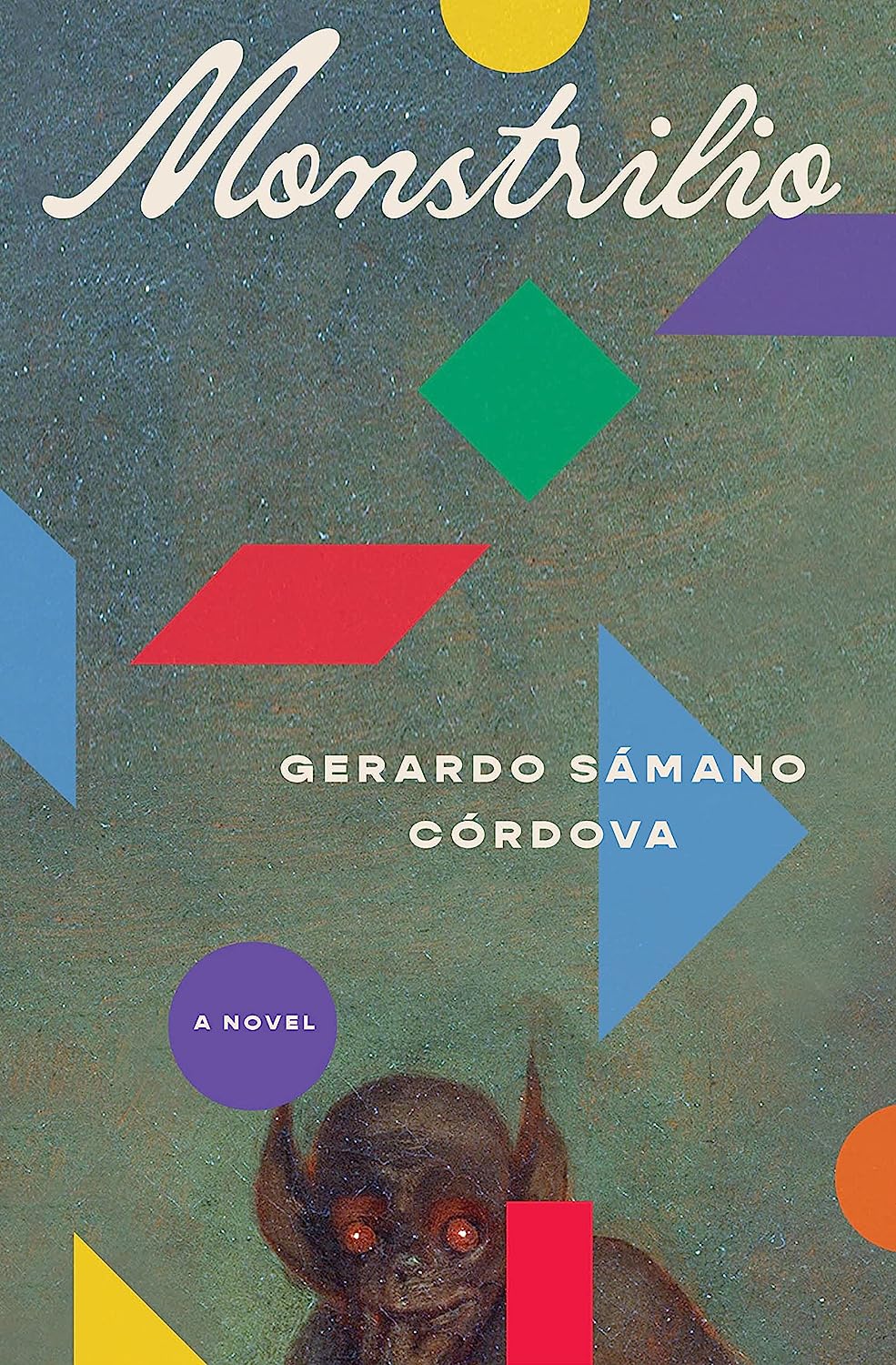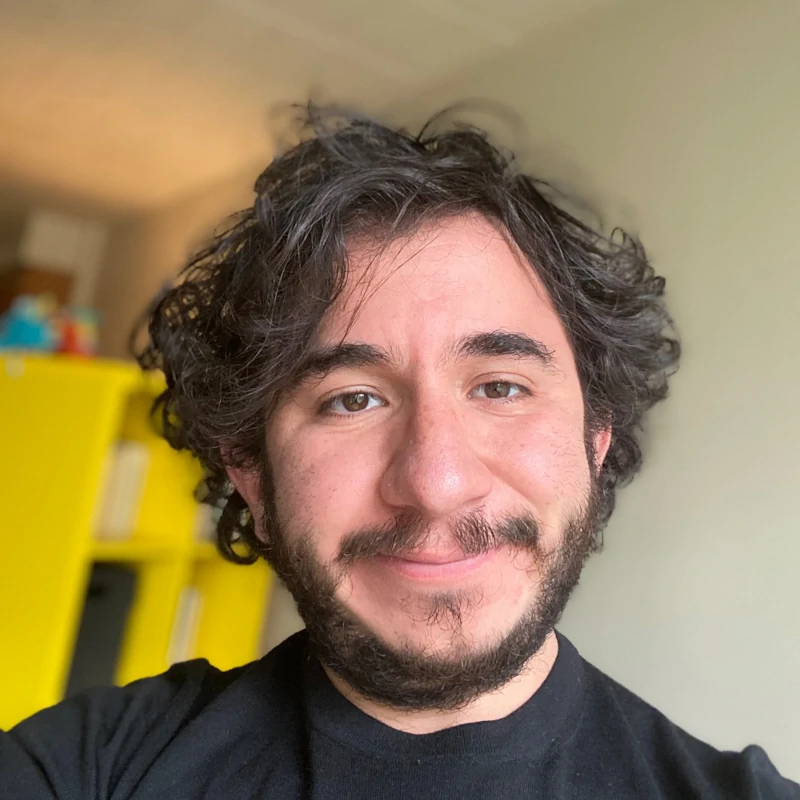
An Interview with Gerardo Sámano Córdova
Words By Gerardo Sámano Córdova, Interviewed by Zara Garcia
Spoiler Alert—The following review contains plot details about Monstrilio.
What was the origin of the idea behind Monstrilio? Is there a particular experience or event that influenced your decision to write this book?
There isn’t a specific event, but rather a question we all have, particularly queer people: Am I going to be loved no matter what? I wanted to see how far love could be stretched. I wondered if it could break. I decided to explore a family’s love if they had to love something monstrous.
How did you manage to strike a balance between infusing elements of horror and the supernatural with themes of tragedy and grief in your novel?
I think horror is the potential of tragedy. What if the worst thing that could happen happens? How do we react? Do we survive? Horror deals a lot with grief—grief as cause and consequence. Grief is so powerful; death so alarming for us mortals that horror finds fertile ground here, as does the supernatural, attempting to explain things that perhaps we humans will never understand.
Monstrilio also explores themes of queerness, not just for young M but for almost every character in the novel. How important was it for you to write a story so representative of queer identities?
Extremely important. I had two goals: one, to have queer characters exist in a world without prejudice, acceptance, or the need for explanation; two, to tell a story in a queer way, challenging what we think traditional narrative should be.
Using multiple narrators isn’t a conventional storytelling method, especially in the context of horror. What was your intent behind featuring four distinct narrators in Monstrilio? How did their voices evolve during the writing process?
I wanted to capture a family’s experience of loving each other—how it changes. Does it vanish? Strengthen? Shape-shift? It was crucial that I get each member’s individual perspectives, each with their unique take on Monstrilio, while still having their own goals and dreams. It was interesting to me how the individual informs the collective and vice versa.

In addition to Monstrilio, you write a lot of short stories. How did writing a novel differ from your experiences in crafting shorter fiction? What challenges and creative opportunities did you encounter in making the transition from short stories to a full-length novel?
Short stories, by virtue of their shortness, have the agility to shift and experiment before they take their final shape. You can write several versions of the same short story without (usually) spending decades on it. Novels cannot shape-shift as effectively. I learned commitment while writing my novel. I couldn’t write a whole new novel every time I got anxious and wanted to scrap the whole thing! I was forced to seek the beauty and awesomeness in what I already had, and trust that even if it was only a paragraph, a sentence, or a funny phrase, it would carry me through.
Why did you feel it was important to separate the identities of Santiago and Monstrilio from M while keeping him connected through shared memories? Was it always your intention for Monstrilio to evolve into M or did this decision come about as you drafted and edited the book?
A lot (MOST) of the book evolved through drafts and edits. But this one thing, the decision to have Monstrilio evolve into M, I always had in mind. I didn’t want the book to simply be a long metaphor for grief. I wanted the metaphor to fight back and say, “I’m not a metaphor. I breathe, talk, and eat,” and see what happened. I wanted the book’s initial conceit to evolve, just like Monstrilio turns into M, hopefully leaving the reader with a more layered and nuanced (or at least more interesting) story.
Monstrilio has received acclaim for its successful blend of horror with elements like folklore and family drama. What tips would you offer to aspiring authors interested in experimenting with the blending of multiple genres in their writing?
Do it! Genres are not set in stone. Play. Create. Art should experiment, question, challenge. Take a trope you love and twist it in a new way, maybe pile others onto it. The more you play around, the better you’ll be at the game.
Are there any books and/or authors that have been fundamental in crafting your own voice as a writer?
So many. Every book I read leaves a little crumb in me. At any given time, I’ll have a few hovering around me that I can’t stop thinking about (although if you ask me in a month, these may have changed):
- Our Share of Night by Mariana Enriquez
- Sexing the Cherry by Jeanette Winterson
- After the Sun by Jonas Eika
- Uranians by Theodore McCombs
- El baile y el incendio by Daniel Saldaña París
The process of getting a book published can often feel more challenging than the writing itself. Could you share your experience with the publishing process and offer some advice to emerging authors who are either just starting or currently navigating this stage?
It is challenging! I’m extremely fortunate to have the amazing Jenni Ferrari-Adler as my agent. She’s been with me since the first drafts of the novel, helping me through the revision process, the publishing process, and everything that comes before, during, and after it’s bought. As harrowing as the process is (you don’t know if your book will be bought!), my advice is to surround yourself with people you trust and who are knowledgeable in the process. Ask a lot of questions. Also, understand that this process will be unique to each writer.